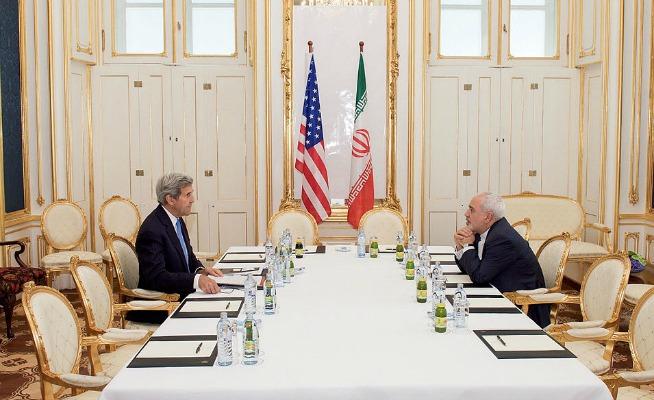Deconstructing the Deal

The negotiations involved dozens of people, but on occasion, as seen in the Palais Coburg Blue Salon on July 1, 2015, the negotiations came down to two figures: U.S. Secretary of State John Kerry and Iranian Foreign Minister Mohammad Javad Zarif. Photo courtesy of the Department of State.
Faculty panel to discuss implications of the recent Iran nuclear agreement
by Christine M. Dugan
The Clarke Forum for Contemporary Issues will host "Breaking Issue: The Iran Nuclear Deal," a panel discussion on the international policy, security and cultural implications of the recent agreement with Iran. The discussion will take place on Tuesday, Nov. 10, at 7:30 p.m. in the Stern Center Great Room, 208 West Louther Street. The event is free and open to the public.
In 2002 the United Nations' International Atomic Energy Agency discovered a covert nuclear site in Iran, sparking fear throughout the world about Iran’s ability to create nuclear weapons. Negotiations began in 2003 to increase Iran’s breakout time—the time it would take Iran to make enough fissile material for a single nuclear weapon.
On July 14, 2015, the world’s major powers—the United States, the United Kingdom, France, Germany, China and Russia, along with the European Union— announced that an accord had been reached with Iran that would limit Tehran’s nuclear ability in exchange for lifting international oil and financial sanctions. The agreement is not without critics; many who do not support the accord question both the ability to enforce the constraints proposed in the agreement and the long-term impact on regional and world stability, especially with regard to Israel.
The panelists who will examine this historic agreement include Andrea Lieber, associate professor of religion; Jeff McCausland, visiting professor of international security studies; Edward Webb, associate professor of political science and international studies; and Anthony Williams, visiting professor of political science and security studies.
Lieber is the Sophia Ava Asbell Chair in Judaic Studies. Her teaching focuses on Judaism as a living religion and evolving culture, from its origins in antiquity through its varied manifestations in the 20th century. McCausland is currently involved in a project for the National Nuclear Security Administration, which focuses on nuclear weapons in South Asia and the proliferation of weapons of mass destruction. Webb, who lived and worked in the Middle East and Europe as a diplomat, focuses on Middle East politics, comparative politics and international relations. Williams, the panel moderator, served as a CIA senior intelligence officer for more than 30 years.
This program was initiated by the Clarke Forum’s student project managers.
Learn More
Published November 3, 2015